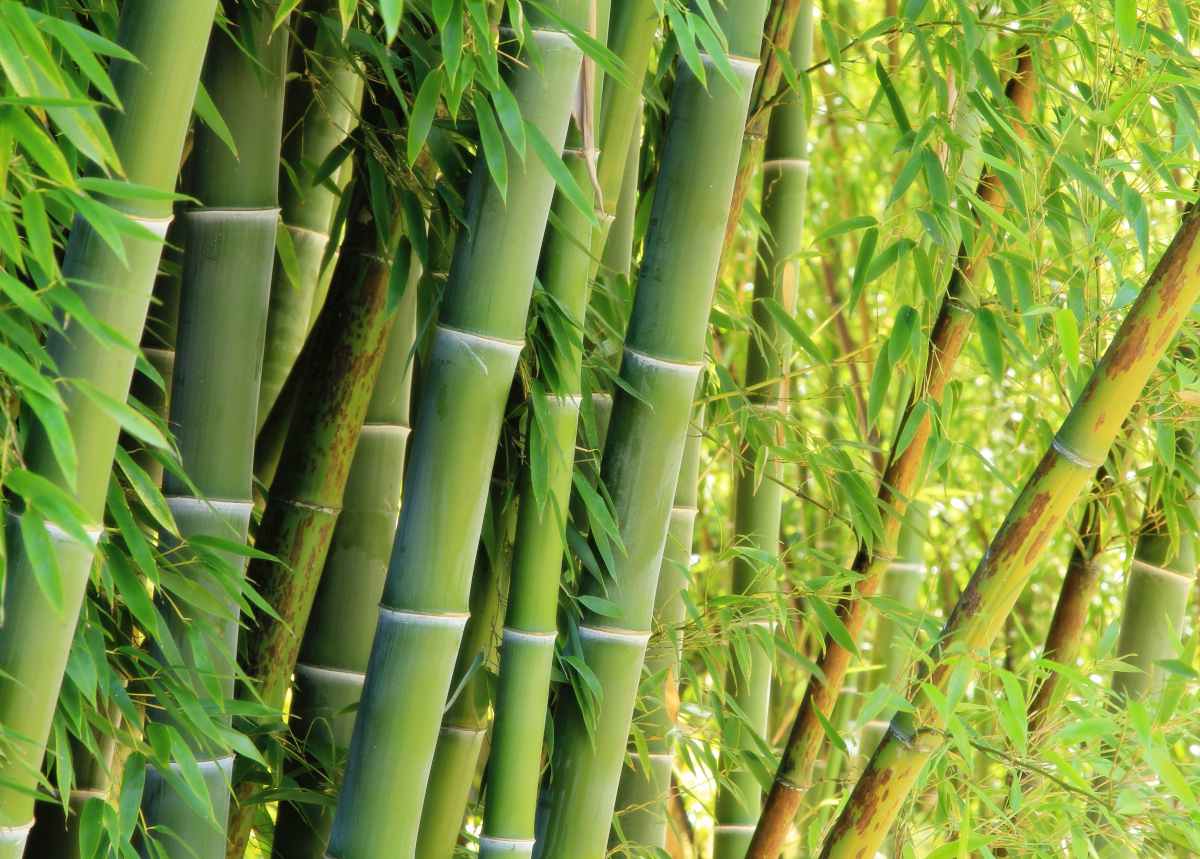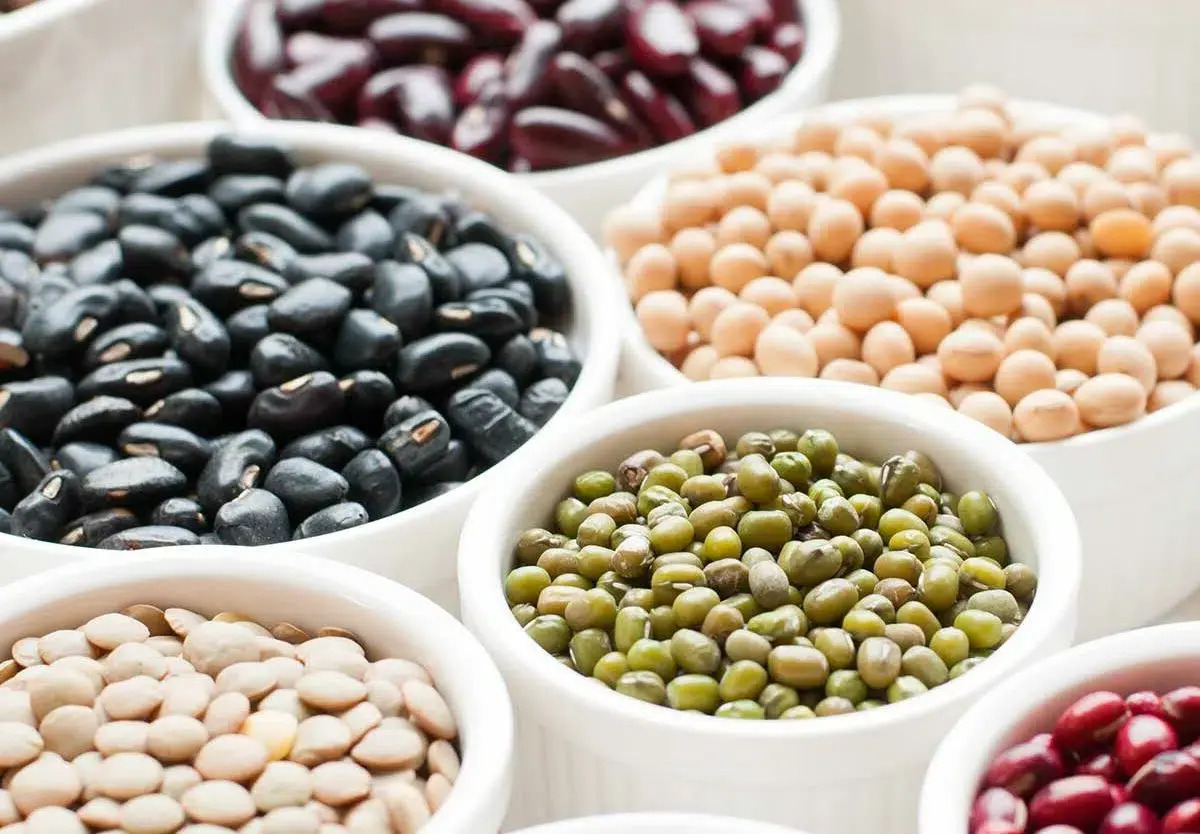
Bamboo, with its slender and tall appearance, has been a source of fascination for centuries. This versatile plant, belonging to the grass family, boasts a plethora of unique qualities that set it apart from other plants. From its rapid growth to its exceptional strength, bamboo has captured the attention of not only nature enthusiasts but also architects, designers, and sustainability advocates.
In this article, we will delve into the astonishing world of bamboo and uncover 14 fascinating facts about this incredible plant. Get ready to be amazed by the myriad of uses, the environmental benefits, and the cultural significance of bamboo. Whether you have a green thumb or simply enjoy learning about the wonders of the natural world, you will be captivated by the incredible attributes of bamboo.
Key Takeaways:
- Bamboo is an amazing plant that grows super fast, is stronger than steel, and releases lots of oxygen. It’s used for fabric, energy, and even brings good luck in some cultures!
- With over 1,000 species, bamboo is a versatile plant with natural antibacterial properties. It’s been used for thousands of years and can even be as strong as concrete when compressed.
Bamboo is the fastest growing plant on Earth.
Bamboo holds the Guinness World Record for being the fastest growing plant, with some species capable of growing up to 35 inches (91 centimeters) in just one day! Its rapid growth makes it a highly renewable resource.
Bamboo has a higher tensile strength than steel.
Despite its lightweight appearance, bamboo is incredibly strong. It has a tensile strength that surpasses that of steel, making it a versatile material for construction and manufacturing.
There are over 1,000 species of bamboo.
Bamboo is a diverse plant with over 1,000 known species. It can be found in various regions across the globe, from Asia and Australia to Africa and the Americas.
Bamboo releases 30% more oxygen than other plants.
Bamboo is a champion in oxygen production. It has the remarkable ability to release 30% more oxygen into the atmosphere compared to other plants and trees, making it a valuable asset in combating air pollution.
Bamboo is naturally antibacterial and antifungal.
Due to its natural properties, bamboo possesses antibacterial and antifungal agents. This makes it an ideal material for products such as cutting boards, kitchen utensils, and even clothing.
Bamboo can be stronger than concrete.
When compressed, bamboo has the potential to exceed the strength of concrete. This incredible property has led to its use in the construction industry for building sturdy and earthquake-resistant structures.
Bamboo can be used to make fabric.
From clothing and bedsheets to towels and bathrobes, bamboo-derived fabric has become increasingly popular. It is known for its softness, breathability, and its ability to wick away moisture, making it perfect for various textile applications.
Bamboo is an excellent renewable energy source.
Bamboo can be harvested and used as a source of renewable energy. It is known for its high calorific value, making it a promising biofuel alternative to fossil fuels.
Some bamboo species can grow up to 100 feet tall.
While many people associate bamboo with smaller plants, some species can actually reach towering heights of up to 100 feet (30 meters) or more.
Bamboo is a symbol of good luck and prosperity in many cultures.
In various cultures, bamboo is considered a symbol of good luck, prosperity, and strength. It is often used in traditional ceremonies and is believed to bring positive energy and fortune.
Bamboo is an integral part of Asian cuisine.
Bamboo shoots are a common ingredient in Asian cuisine, adding a unique texture and flavor to dishes. They are often stir-fried, steamed, or used in soups and stews.
Bamboo can be used for musical instruments.
Bamboo is a versatile material for crafting musical instruments. It is famously used to create wind instruments such as flutes, clarinets, and even saxophones.
Bamboo has natural pest resistance.
Bamboo contains a natural bio-agent called “bamboo-kun” that helps repel pests and insects. This makes it an eco-friendly alternative to chemical pesticides in farming and gardening.
Bamboo has been used for thousands of years.
Bamboo has a rich history dating back thousands of years. It has been utilized for various purposes, including construction, medicine, art, and everyday items in many cultures around the world.
Conclusion
In conclusion, bamboo is a truly remarkable plant that possesses numerous astonishing qualities. Its rapid growth rate, incredible versatility, and strong durability make it an invaluable resource in various industries. Additionally, bamboo’s environmental benefits, such as its ability to absorb carbon dioxide and prevent soil erosion, further emphasize its importance in sustainable practices. From its use in construction and furniture to its role in clothing and paper production, bamboo continues to captivate and inspire with its endless possibilities. So, the next time you come across this incredible plant, take a moment to appreciate its many fascinating attributes and the wonders it brings to our world.
FAQs
1. How fast does bamboo grow?
Bamboo is known for its rapid growth and can grow up to three feet in 24 hours under ideal conditions.
2. Is bamboo a sustainable resource?
Yes, bamboo is highly sustainable due to its fast growth rate, low water requirement, and ability to regenerate from its root system.
3. Can bamboo be used for building construction?
Absolutely! Bamboo is an excellent construction material due to its strength, flexibility, and high tensile strength.
4. Can bamboo be used as a renewable source of energy?
Yes, bamboo can be used as a renewable source of energy through its conversion into biofuels, such as charcoal and biogas.
5. Is bamboo a type of wood?
No, bamboo is not a wood but a type of grass. However, it has similar properties to wood and is often referred to as “wooden grass”.
6. Can bamboo be eaten?
Yes, young bamboo shoots are edible and are a popular ingredient in various Asian cuisines.
7. Does bamboo have medicinal properties?
Yes, certain species of bamboo have been used in traditional medicine for their potential antibacterial, antiviral, and anti-inflammatory properties.
8. Can bamboo be used in fashion?
Absolutely! Bamboo fibers are used to create soft and luxurious fabrics that are eco-friendly and have excellent moisture-wicking properties.
9. Does bamboo require a lot of water to grow?
No, bamboo requires less water compared to other plants and can survive with minimal irrigation.
10. Can bamboo be grown indoors?
Yes, certain species of bamboo can be grown indoors as decorative plants, provided they receive adequate sunlight and water.
Was this page helpful?
Our commitment to delivering trustworthy and engaging content is at the heart of what we do. Each fact on our site is contributed by real users like you, bringing a wealth of diverse insights and information. To ensure the highest standards of accuracy and reliability, our dedicated editors meticulously review each submission. This process guarantees that the facts we share are not only fascinating but also credible. Trust in our commitment to quality and authenticity as you explore and learn with us.


